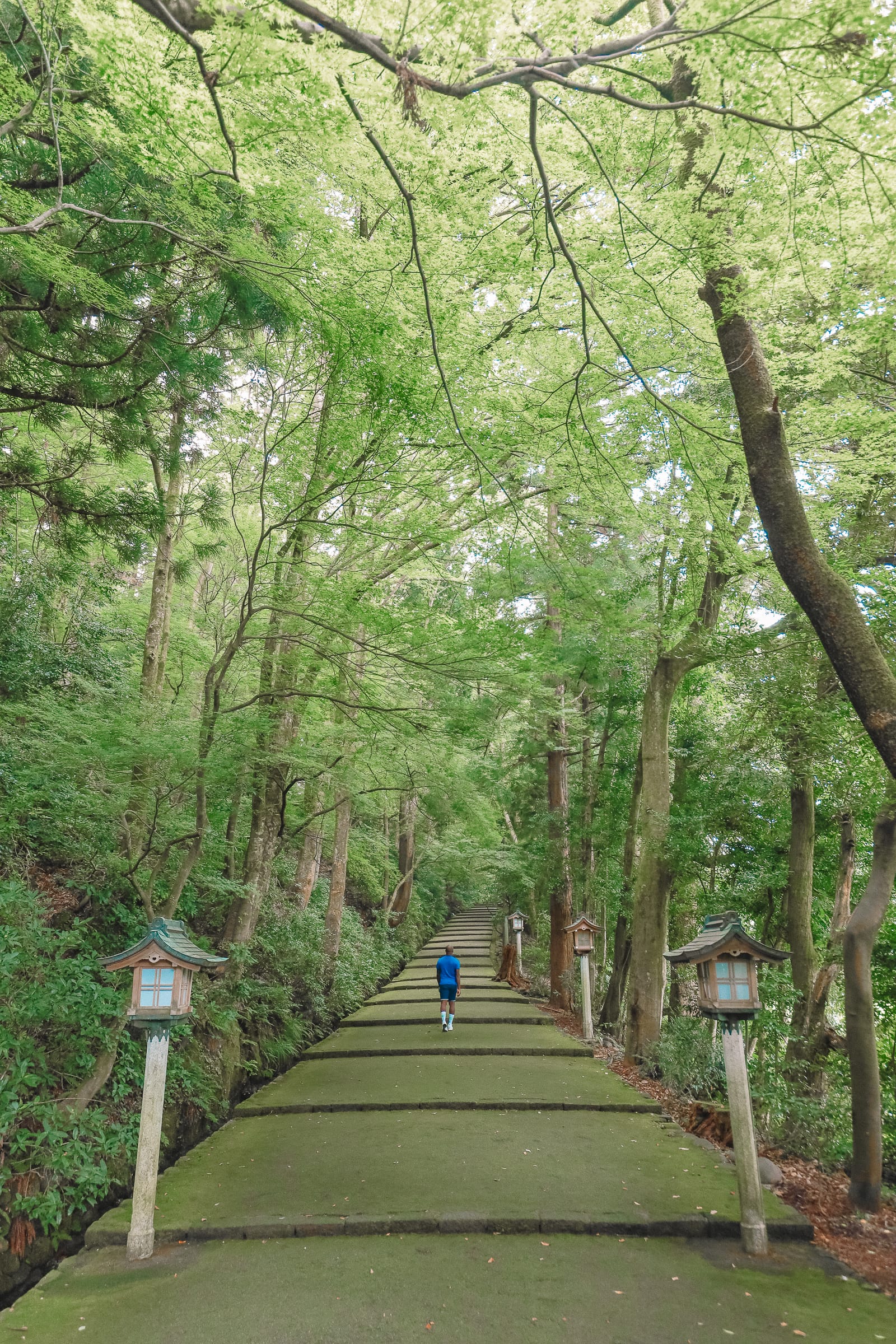Summary

After an extensive adventure in Kanazawa yesterday, we rejuvenated with approximately 11 hours of sleep. This rest completely acclimated us to the Japanese time zone, and we both awoke refreshed and eager to continue our exploration.

After indulging in breakfast, we believed it prudent to walk off some of those calories with a leisurely stroll around the vicinity. Fortunately, we discovered that nearby was the Nagamachi Samurai Residence, a location once inhabited by samurai.
This immediately captivated my interest, and it became clear we had to visit.

As we wandered through the narrow streets, it became evident why the Nagamachi Samurai District was chosen as a residence. The architecture of the houses was remarkable!
To this day, several of these structures have been preserved, retaining their historical charm reflective of the Samurai District of yore.

While the area is predominantly residential today, a few notable sites remain open to visitors. Notably, the Nomura Samurai Family House features picturesque gardens and beautifully designed rooms.

Following the payment of a nominal fee, we explored the premises and took a leisurely walk through the gardens.

Although much of the information provided is not in English, staff members are generally eager to assist with any inquiries.

We encountered historical scrolls dating back centuries, including one in which a samurai expressed gratitude for receiving the head of an enemy—quite a startling acknowledgement!




Amid the excitement, we learned about a tea experience available on the upper levels. As a true enthusiast of tea, I could not resist the invitation, and we promptly ascended without hesitation.



Despite this not being a customary tea-drinking endeavor (which can typically last for hours), it was still a delightful experience; the green tea promptly arrived and reminded me of why the Japanese complement tea with something sweet. The bitterness often takes me by surprise, for some reason I tend to forget about it.

Time was of the essence, prompting us to conclude our day and swiftly make our way over to the hotel for check-out as we headed to our next destination in the Ishikawa Prefecture, Hakusan City.

After collecting our luggage, we boarded the Kitatestu Ishikawa line, excited for the journey into the hills, given that Hakusan City is distinctly more nature-oriented and rural in comparison to Kanazawa, the capital.

After approximately 30-45 minutes of travel, our train arrived and we were eager to embark!


Given its quiet and tranquil atmosphere, we planned to immerse ourselves fully in the ambiance, particularly following a busy day in Kanazawa. However, right across from the station we found the city hall that offered electric bikes for rent.

I have a particular fondness for electric bikes, as they grant me the ability to engage in cardio without overly exerting myself—it’s my preferred method of cycling!


While we ventured out, the weather took a turn for the worse. After approximately 15 minutes, light rain transformed into a heavy downpour, leading us to conservatively abandon our biking plans. It seemed that Mother Nature had no desire for us to engage in physical activity.

With the rainfall, we decided to take an early lunch. Accordingly, we made our way to Ohagiya to attempt crafting sasazushi, a type of sushi wrapped in bamboo leaves.


Having felt hungry by this point, we ventured over to a local restaurant dedicated to crafting bamboo leaf crafts and figures, immersing ourselves in the creation process.

This craft felt reminiscent of sewing, as it required meticulous attention to detail to ensure everything was properly aligned. However, I must admit I struggled—most of my pieces were aided by the wonderful staff, save for the googly eye I applied as an embellishment! 😉

With the approach of increasingly heavy rain, which coincided with a typhoon, we conceded that we should retreat to our Ryokan, Wataya (Tsurugimachi). Upon arrival, I knew immediately that this location was indeed exceptional.

Adjacent to the shrine we visited earlier, the Ryokan presented a breathtaking environment. Upon being escorted to our rooms, we cherished some green tea and embraced a moment of relaxation.

The entire establishment exuded elegance, with rooms that featured their own fire pits for cooking on the open wooden porch area, lending to a deeply tranquil ambiance.




After several hours of rejuvenation, we opted to explore the Onsen prior to dining at the upper levels.

The atmosphere in the entire venue was calm and restorative, enhancing our anticipation for the impending Kaiseki dinner.

A Kaiseki traditionally consists of multiple courses served on elaborately crafted plates over several hours. This contrasts sharply with a single traditional meal and was a concept we appreciated immensely following our prior experience on Kyushu Island.





